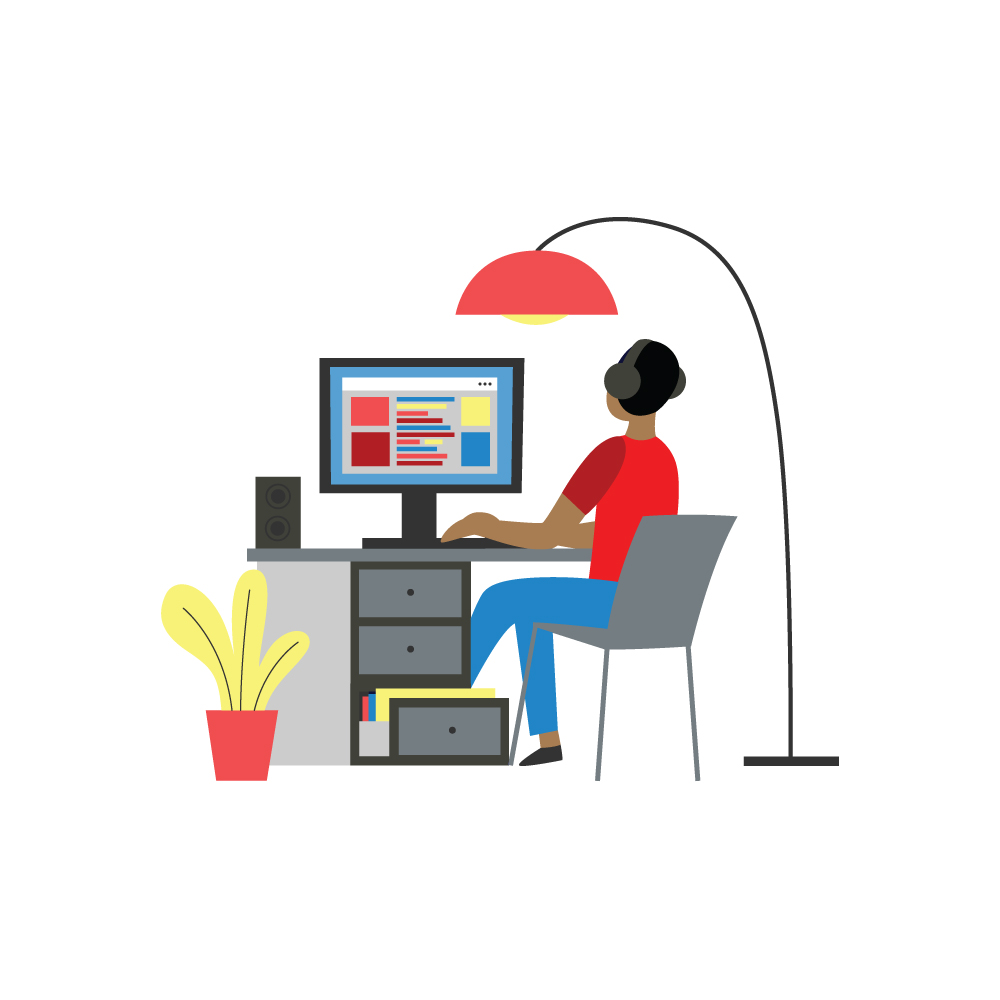
Many thousands of office employees who were forced to work from home because of COVID-19 will continue to do so. Only 36 per cent of Canadians anticipate returning to their “place of work” when the pandemic subsides, according to an Angus Reid study. Freelance editors have been working from home for years and, by and large, loving it.
Freelance editors know how to maintain a routine, how to avoid spending the whole day wearing pyjamas and not combing their hair, how to cope with feeling isolated. And how to achieve a work-life balance — or do they?
Work-life balance
That last one, work-life balance, is an especially huge challenge, as many are discovering. Forbes.com recently posted an article about the 168-hour workweek — that is, being on the job 24/7 because you are never really away from the office.
Isn’t this the case for freelancers? I remember working to a tight deadline for about a week, and at the same time trying to keep five or six other clients in abeyance. I barely ate or slept, and of course I didn’t make it into the shower all that often. Another time, I edited a book all during the May long weekend. These were not regular occurrences, but they did happen.
Lucy Payette, the new editor of this blog, says, “In my short stints freelancing, I struggled with the illusion of flexibility and ended up working many more hours for less to meet deadlines (or for my own unrealistic attempts at perfection perhaps), and I sense that others do as well.”
Words of wisdom
Lucy suggested that I, as a retired and self-described “born-again home office worker,” could offer some words of wisdom. Well, I can. But knowing what to do and doing it are of course two very different things.
Freelance editors know these rules, and sometimes they succeed in following them:
- Set boundaries with the people (and pets) in your life. “Between this hour and this hour, I’m working.” The videos of kids and cats invading an on-screen meeting are funny. But not that funny.
- Remember that if you were in a business office, you would take breaks. Sometimes far more and longer breaks than the freelance editor who charges by the hour might do. So, include that in your schedule.
- Instead of missing the direction and decision-making that you receive from your “supervisor,” enjoy your freedom and autonomy. You might just find, as many freelancers do, that you love this aspect of the work.
More work-from-home tips
There are many more tips available online (see FeistyFreelancer.com). In Season 4, Episode 5 of The Editing Podcast, for example, Louise Harnby and Denise Cowle discuss issues freelance editors and proofreaders endure such as dealing with burnout, procrastination and that feeling of being “stuck in a hamster wheel.”
“You have to be realistic about the hours that are available to you, and I think you get better at doing that,” says Denise Cowle in the episode “How to run and grow an editing and proofreading business.”
As we celebrate Labour Day this weekend and contemplate working conditions in a fluid work environment, we freelance editors can take some credit. We should add “knowing how to work from home” to our resumés, alongside “encyclopedic knowledge of The Chicago Manual of Style.” Some of us might even become working-from-home consultants if the pandemic lasts for a couple of years.
___
Previous post from Anita Jenkins: Iva Cheung: Winner of the 2019 Karen Virag Award
The Editors’ Weekly is the official blog of Editors Canada. Contact us.
Discover more from L'HEBDOMADAIRE DES RÉVISEURS
Subscribe to get the latest posts sent to your email.
